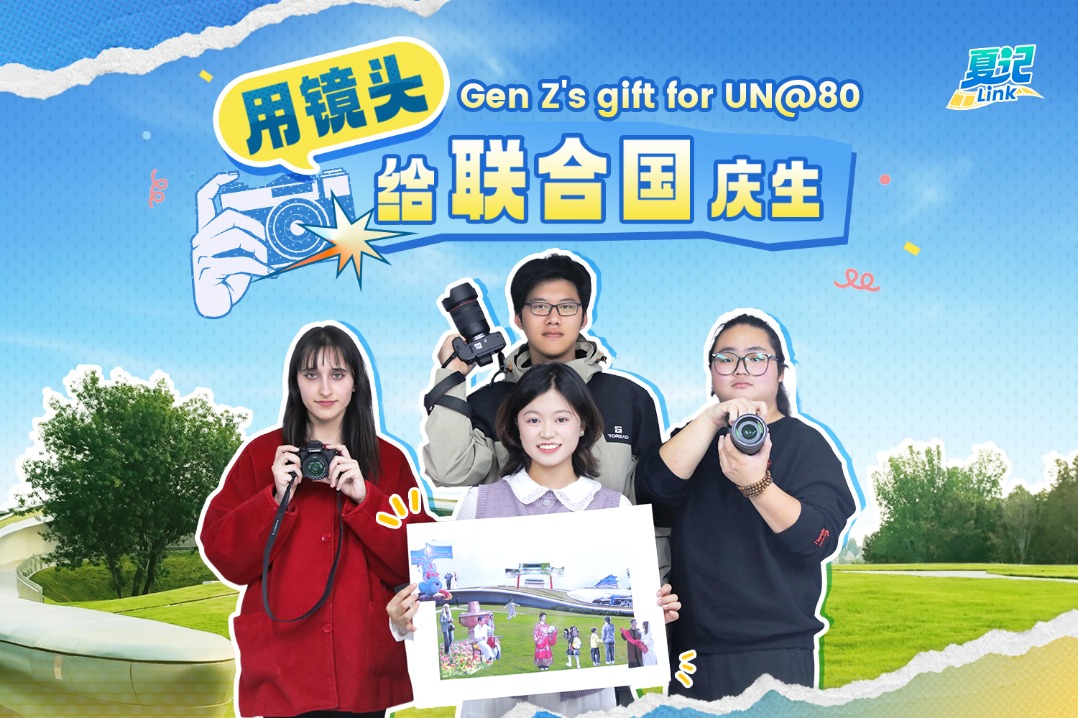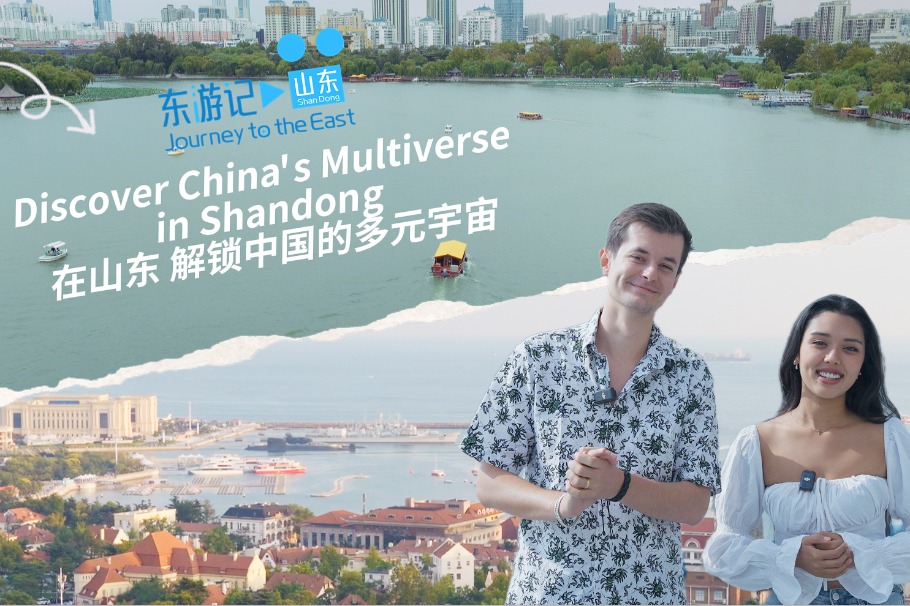Experiences in China make lasting impact
Educator fondly recalls her visits and changes the country has undergone
By YIFAN XU in Washington | China Daily Global | Updated: 2024-10-09 09:10
Editor's note: As the People's Republic of China celebrates the 75th anniversary of its founding this year, China Daily asked prominent international figures to reflect on their relationship with the country and to talk of the direction in which they see it going.
Fanta Aw's connection to China goes back to the 1950s.

Aw's father was part of the first delegation of African students, who at the time were in France, to go to China some 70 years ago.
"I remember him talking so fondly about his experience. They traveled all around the country, met with others, learned more about China," Aw said.
Aw, the CEO of the Association of International Educators, or NAFSA, will visit China twice this fall.
She will give a keynote address at the 2024 International Association of University Presidents Conference, to be held in Beijing on Oct 13-15.
She will also visit China in late October and early November for the 2024 China Annual Conference and Expo for International Education.
Aw has been in China four times already, between 2010 and 2017. But her affinity for China goes back much further.
Aw, who said she is "the product of international education", was born in Mali, in West Africa. At age 7, she left Mali and moved to Liberia with her family, her "first international experience".
Aw lived there for about five years, attending the French international school. At 12, she went to Washington, DC, to study in another French school. Five years later, she moved to Kenya and went to a French school in Nairobi, from which she graduated before returning to the United States for college.
She said the experiences made her "very curious about wanting to understand more about the world, especially different cultures".
Aw had taken some courses in Chinese history and met students and faculty from China.
"Then I had my first wonderful opportunity to go to China when they had the Expo in Shanghai," Aw said.
In 2010, Aw visited China as part of a delegation of universities, at the invitation of the US embassy, to attend the Shanghai Expo.
"We're in Beijing, and we're in Shanghai, and I fondly remember how amazed I was at all of what I saw and experienced," she said.
Shortly afterward, she went to China for the second time to visit more universities in Shanghai, Chengdu, Guangzhou and Beijing, and also met with US embassy staff and representatives of chambers of commerce.
"The third time when I went, the American Association of State Colleges and Universities had one of the longest dual-degree programs in China, with many of their universities having partnerships with universities in China," said Aw. "I went because they were holding their graduation, and I was asked to do a keynote."
Aw visited Xiamen, a coastal city in Fujian province, describing it as "beautiful" and "wonderful".
She also went to Xi'an, an ancient city known as the "Capital of Thirteen Dynasties", to see the Terracotta Warriors.
Aw described exquisite Chinese tea ceremonies that elevate the experience of tea drinking. She said she often ate Chinese food in the US and elsewhere, and said she now understands "how important the regional cuisines are".
"Every region has its own cuisine, which is different. Sichuan cuisine is different from Guangdong cuisine," she said. "The richness of the different cuisines and depending on where you are was important here," she said.
She also visited a Chinese doctor in the US for acupuncture therapy.
"The technique is that it's looking at how to address the core problem, not just the symptom," she said. "Western medicine can just look at the symptoms, but not the cause."
Youth and creativity
Aw said she found China to be "fashionable" and "young".
"We visited one of the major social media outlets in Beijing. It was literally social media with tech… everybody was literally less than 30 years old."
Aw said the employees "were seated thinking about creativity".
"How do we get information out? How do we think about the generations and what they need?" Aw said. "And we had the most fascinating conversation with them. What reminded me was also just the beauty of the youth in terms of energy, ideas and wanting to get things done.
"To see that energy of so many young people was a really important reminder of how, in societies, it is very important to understand one's history, and it is very important to create spaces for the young people and their creativity," she said.
Of the two upcoming trips to China, Aw said it would be great to meet old friends and reconnect with peers in international education in the post-COVID period.
"Since I haven't been back to China in a while, I'm really looking forward to going back and seeing how much has changed. Because I think every time I've gone, there's been so much change and really positive development," said Aw.
Of NAFSA, Aw said, "We want to work with universities and all those who are in all different areas of international education."
























